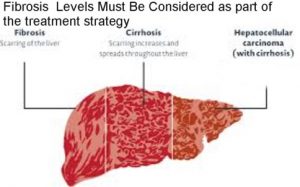Hepatitis C Blog
Greg Jefferys Hepatitis C blog deals with all the issues associated with hepatitis C
Hepatitis C Relapse
- May 8, 2020
- By Greg Jefferys
- 0 Comment

What causes relapse after Hepatitis C treatment? This post answers this important question.
Hepatitis C Relapse: How does it happen?
Today in my Facebook Hepatitis C Support group the question below was asked.
“If you are undetectable of hep c then how in the world do people relapse?”
The issue of relapsing after Hepatitis C treatment is one that comes up regularly. Fortunately, we now understand Hepatitis C treatment with Direct Acting Antivirals (DAAs) much better than we did a few years ago and Hep C relapse rates are much lower than they used to be.
When I first started helping people access generic Hep C medicines the relapse rate was about 5%. That is, about 1 in 20 people relapsed after treatment. However, in the past 2 years, I have only had one person relapse after Hep C treatment. That is one out of about 1,000 people treated. Or you can say its a 99.9% cure rate. These are very good results indeed!
However, Hep C relapse is still an issue for people doing Hep C treatment or considering doing it. People have serious concerns about the chance of relapsing after they finish the Hep C treatment.
A Conversation About Hep C Relapse after Treatment: What does “Undetected” viral load mean?
So here is my reply to the question above and the rest of the conversation thread:
“In answer to your question: Its the limit of the detection technology… The best test can only detect around 15 viral particles in one milliliter of blood (one drop). So if levels are below that number < 15 (under 15 particles in a mil) then it is called “undetectable”
Most people doing treatment with DAAs reach “undetectable” within 7 days of starting treatment.
This does NOT mean there are no live Hep C virus particles in your body, it means that there are less than 15 in one drop of blood.
If you have just one single “live ” Hep C virus particle in your body when you finish your Hep C treatment you will relapse.
This is because even only one live viral particle can replicate very fast. One virus can replicate itself so fast that in 24 hours there are tens of millions of virus particles and in a week or so there will billions.
The Hepatitis C virus can hide out anywhere in your body but the most difficult place to reach them with the Hep C medicine is when they are in the liver scar tissue. This is why people with cirrhosis should do a longer treatment than people without cirrhosis.
This is why we must always do the entire treatment time.”
The person then asks:
“So, Greg, is there any hope of being completely cured?”
My reply:
“The cure rates for Hep c nowadays are above 98percent. if you reach SVR 12 you are cured
Once you have stopped the treatment if there are any virus remaining in your system they will replicate very fast …1 would become millions in just days
There are no low numbers after the end of the treatment
You either have millions or none
This means that if you UNDETECTED 12 weeks after finishing the treatment then there is no virus in your system
The person:
” Greg Jefferys thanks. I was 2.5 million viral load with an F2 liver and had it for 20 years. I have 1 week of treatment of epclusa left. I’ve had a blood test every month and has been undetectable after 1 week of treatment. I have my fingers crossed”
“Why does one person relapse from Hep c when another does not?”
What is a Hepatitis C Relapse?
What are the causes of relapse?

If you have a high fibrosis level, or cirrhosis you should consider doing a longer treatment time
Poor Absorption of Harvoni, Epclusa: Antacids and Magnesium
Hep C Medicine Being broken Down too Fast: Taurine, Caffeine and DAAs
Body weight and “One dose fits all.”
Gilead offers a “One does fits all” with its products of Harvoni and Epclusa however this is not exactly correct. Research shows that people with body weights over 120 kilograms will have a higher chance of failing treatment than people with a lower body weight.
If you are a big person who is treating their Hep C you should discuss with your doctor the possibility of doing a longer treatment time.

Better not to relapse after your first Hepatitis C treatment. There is a plan B and a plan C but each time you have to treat Hepatitis C after a failed treatment the harder it gets to cure. Get your treatment right the first time.
Conclusion
Can Hep C Relapse, Causes Of Hep C Relapse, Hep C Relapse, Hep C Relapse After Treatment, Hep C Relapse Harvoni, Hep C Relapse Symptoms, Hep C Relapse Treatment, Relapse Of Hep C, Symptoms Of Hep C Relapse
- Post Categories
- Uncategorized
Greg Jefferys
Tags
Join my Hep C Support Group.
Talk privately to other people
with Hep C in a closed group.
Disclaimer
Greg Jefferys’ blog is provided for informational purposes and is not intended as Medical advice, diagnosis, or treatment.
Whilst Greg Jefferys is doing a PhD it is not in medicine. Any advice offered is offered in good faith and based on an extensive general knowledge of Hepatitis C and access to generic Hepatitis medicines Greg Jefferys has acquired through his work as an advocate and activist
The Hep C Buyers Club is not a company or corporate entity but simply a loose structure intended to offer a free information to people with Hepatitis C
Other Books
Click here for other books by Greg Jefferys.
for Kindle
I have converted this diary into a kindle book for folk who might like it in that format. I have added a lot more depth than the original diary contains, it’s more of a complete story in book format. I have priced it as low as Kindle allows me to @ 99 cents. If you are interested just click here to go to the Kindle page.
Recent Posts
-
Hepatitis C Treatment and Liver Cancer June 19, 2024
-
Motivate C a Profitable Hep C Initiative April 29, 2024
-
After Hep C Healthy Liver Diet September 4, 2023
-
Fear of Hep C Treatment April 14, 2023
-
My Letter to Joe Biden March 2, 2023
-
Dormant Hepatitis C November 27, 2022
-
How Much water to drink during Hep C treatment October 13, 2022
-
Hep C and Peripheral Neuropathy August 21, 2022
-
Fatigue Brain Fog and Hepatitis C August 18, 2022
-
Hep C and Liver Cancer May 18, 2022
Contact Us
If you have any questions please reach out by email, or complete the below form.
Greg Jefferys3439 Channel Highway, Woodbridge, Tasmania, 7161.
Email: gregjefferys@outlook.com


